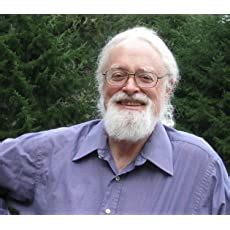A Quote by Joyce Appleby
Rarely has a collection of essays from a dozen scholars created a whole greater than the sum of its parts, but Capitalism Takes Command conveys with detail, coherence, and sophistication the changes in the American economy in the nineteenth century under the multiple imperatives of capitalism.
Related Quotes
It was only in the late nineteenth century and then the twentieth century, with the maturation of consumer capitalism, that a shift was made toward the cultivation of unbounded desire. We must appreciate this to realize that late modern consumption, consumption as we now know it, is not fundamentally about materialism or the consumption of physical goods. Affluence and consumer-oriented capitalism have moved us well beyond the undeniable efficiencies and benefits of refrigeration and indoor plumbing.
You know that the population is of this planet is now ten times greater than it was in the ages preceding capitalism.; you know that all men today enjoy a higher standard of living than your ancestors did before the age of capitalism. But how do you know that you are the one out of ten who would have lived in the absence of capitalism? The mere fact that you are living today is proof that capitalism has succeeded, whether or not you consider your own life very valuable.
At the turn of the [21st] century it was really Sergey Brin at Google who just had the thought of, well, if we give away all the information services, but we make money from advertising, we can make information free and still have capitalism. But the problem with that is it reneges on the social contract where people still participate in the formal economy. And it's a kind of capitalism that's totally self-defeating because it's so narrow. It's a winner-take-all capitalism that's not sustaining.
You have read and heard that communist theory-the science of communism created in the main by Marx, this doctrine of Marxism-has ceased to be the work of a single socialist of the nineteenth century, even though he was a genius, and that it has become the doctrine of millions and tens of millions of proletarians all over the world, who are applying it in their struggle against capitalism.
Scholars have endlessly written about antebellum Protestant thinking about slavery. Now, finally, Friends of the Unrighteous Mammon turns a spotlight on a new, crucial question: how did antebellum Protestants parse capitalism? For anyone who seeks to understand the political economy of the antebellum era-or, indeed, the complex entanglement of Christianity and capitalism today-this book is critical. I, for one, am very grateful to Stewart Davenport for having written it.
There's a real difference between venture capitalism and vulture capitalism. Venture capitalism we like. Vulture capitalism, no. And the fact of the matter is that he's going to have to face up to this at some time or another, and South Carolina is as good a place to draw that line in the sand as any.
Truth is found neither in Marxism nor in traditional capitalism. Each represents a partial truth. Historically capitalism failed to see the truth in collective enterprise, and Marxism failed to see the truth in individual enterprise. Nineteenth century capitalism failed to see that life is social and Marxism failed and still fails to see that life is individual and personal. The Kingdom of God is neither the thesis of individual enterprise nor the antithesis of collective enterprise, but a synthesis which reconciles the truths of both.








































